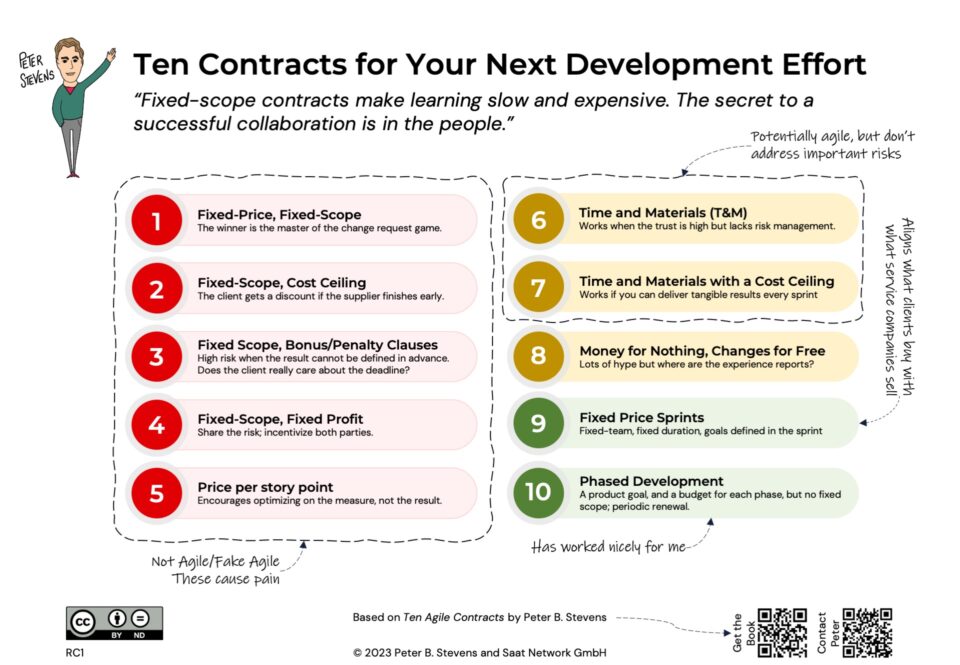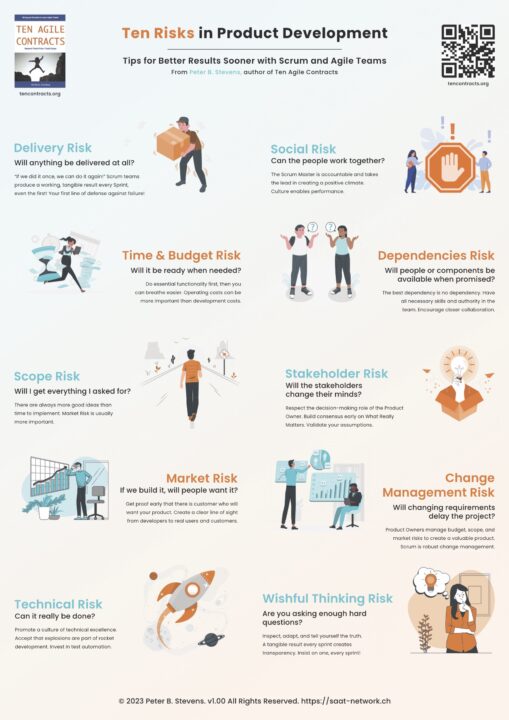Ten contracts for your next Agile project
22-05-2019What does a Sourcing Manager need to know about Scrum?
24-05-2019“Procurement and Sourcing teams need to develop commercial models enabling Agile delivery. Putting a price or paying for something when it is not known what will be delivered requires a leap of faith for executives and CFOs to approve. Contracts should be negotiated in an agile way.”
— Martin Stark, IT Strategic Sourcing Manager
— Martin Stark, IT Strategic Sourcing Manager
What does a Client Service Manager or Purchasing Manager need to know about contracts? What does a Client Service Manager need to know about software development, Scrum and “Agile”? What does a Scrum Master or Scrum Product Owner need to know about contracting?
As a customer or supplier of software services at the beginning of a software development project, you know that there is too much at stake to work with just a verbal agreement. Although the Agile Manifesto values customer collaboration above contracts, contracts are often necessary when working with external suppliers, if for no other reason than to ensure a common understanding of what will be accomplished and who will get paid how much by when.
A contract is really just a set of written playing rules. The right rules increase the chance of success for both parties. The wrong rules make cooperation difficult and hinder progress. Which contract forms are best for agile development projects?
Contracts set the basic playing rules for the project. In theory, they are freely entered by both parties to create optimal conditions for successfully completing the project. In practice, contracts are often seen as competitive games in which the objective is to place the other party at a disadvantage, especially if things go badly.
Large companies and governments often have standard conditions which have to be accepted en bloc as a pre-requisite to doing business with them. These conditions are seldom fair, so a reasonable project outcome depends heavily on a good relationship with the actual customer and avoiding recourse to the contract or the law. (The Agile Manifesto is right in this point: customer relationships are more important than written contracts!)
Even negotiated contracts do not always strive for a win-win situation, so you may need the help of experts. However, from the customer’s perspective, contracts produce no added value. They are an artifact of the development process, not something valuable for the customer, so the effort spent negotiating and producing them should be minimized.
A contract defines control, apportions risk and reflects trust between the parties. What happens if something goes wrong? Who pays how much if the project is more difficult than expected? Who benefits if the project is finished earlier than planned?
A contract can have unintended consequences. A contract that is based on invoicing time and materials can create overhead to record, authenticate and, if necessary, defend the amounts claimed. A contract that defines exact roles, especially when more than one supplier is involved, can make it impossible to reorganize to be more effective. A contract that is based on delivering a defined scope can make it difficult and expensive to react to new information during the course of the project.
The wrong playing rules can be detrimental to the success of the project. Bad rules can lead to higher prices, longer time-frames or unrealistic functional expectations. Win-lose games are usually detrimental to project success. Quality most often suffers. Do you want the ‘A-Team’ or the ‘B-Team’ working on your project? Think carefully about how much pressure you put on the supplier.
The text is excerpted from Ten Contracts For Your Next Agile Project, by Peter Stevens.
You can get the whole book now, or you can read it a chapter at a time as I publish it here under the label ten contracts. To download the e-book or pre-order the physical book visit https://saat-network.ch/ten
You can get the whole book now, or you can read it a chapter at a time as I publish it here under the label ten contracts. To download the e-book or pre-order the physical book visit https://saat-network.ch/ten




